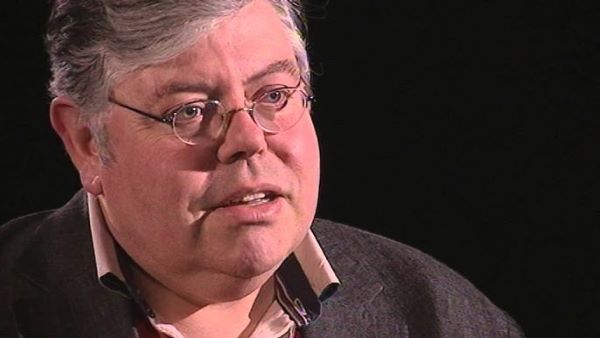The Evangelical Counsels of poverty, chastity and obedience should be replaced by equality, dignity and neighbourliness, Professor Thomas O’Loughlin has said.
The Emeritus Professor of Historical Theology at Nottingham University said the “greatest weakness” of the three traditional counsels was their role in creating a “fundamentally unequal” two-tier Church.
In his address to the Spirit Unbounded assembly, Professor O’Loughlin said: “The Evangelical Counsels of the traditional form have been a central plank and a distinguishing mark since the Reformation.” Chastity, poverty and obedience, he said, are the hallmarks of vowed religious men and women.
While Vatican II went a long way towards removing that two-tier Church, Professor O’Loughlin said sixty years on from the Council “many traces” of the two-tier church remain.
“We still think that there are Christians, and then there are the Religious. We only have to look at the make-up of the Synod to see this,” he said, as there was “no element of pro rata representation” for the laity.
A two-tier church and a two-tier notion of how the Church works “goes against the very essence of the notion of our shared dignity in baptism,” he observed.
Obedience, he highlighted, was not obedience to the Gospel or to the truth or to the demands of discipleship, it was obedience to Church authority. “While that may be necessary in a highly structured organisation such as a religious order, it raises the question of power and control.”
The theologian said the scandals over the last twenty years had “shown just how often obedience has been used and abused in the Church”.
Calling for equality to be at the centre of the Christian life he said developing a “better notion” of the Evangelical Counsels would do “a great deal to reform and renew the Church in which we are all born as equals with dignity and as brothers and sisters in baptism.”
In her address to the Spirit Unbound assembly, theologian Tina Beattie offered a reflection on the findings of an international survey of Catholic women commissioned by Catholic Women Speak, an online network for dialogue and theological awareness-raising among women.
The research was carried out by Dr Kathleen McPhillips and Dr Tracy McEwan of the University of Newcastle in Australia and attracted 17,200 responses from women in 104 different countries.
A preliminary report on the survey findings was sent to the Vatican for the synod process in September 2022 and this was followed by a more in-depth report which was presented to Pope Francis in March this year during celebrations in Rome to mark International Women’s Day.
According to Prof Beattie, the findings provide a snapshot of the commonalities and differences among women from different cultures and age groups.
It found that on the whole, older women tended to be rather more radical and urgent in their calls for change than younger women, who appeared to be more comfortable with the status quo.
The survey showed a broad consensus across a number of issues. A majority agreed with the need for change and a majority affirmed their desire to see greater inclusivity and participation in the Church at all levels.
Acknowledging that surveys are “blunt instruments”, the retired Professor of Catholic Studies at Roehampton University said they need discernment to understand how to interpret them.
“Many of us feel the need for greater democratic participation in the life of the Church but we are often told that the Catholic Church isn’t a democracy. We might look around us today and realise the potential for democracy to be hijacked by populist groups and indeed mob rule when there isn’t a shared understanding of the common good and the just society.
“That’s why I think it is helpful to approach a survey such as this from the perspective of the sensus fidei.”
She highlighted that the vast majority of women who responded to the survey agreed with the statement “My Catholic identity is important to me” and many respondents expressed their ongoing commitment to the sacramental life of the Church, especially the Eucharist.
“They use terms such as love, source of grace, central and an anchor when explaining their relationship with the Eucharist.”
According to Tina Beattie, the survey respondents were “by and large faithful practising Catholic women” who expressed “intense levels of frustration, disillusionment and betrayal by the way the Church is governed and the way its daily life is administered by the leaders, including great discontent around continuing spiritual and sexual abuses of power and clericalism”.
She displayed the findings of two questions put to respondents in which the majority agreed that women should be eligible for ordination to the priesthood and women should have freedom of conscience with regard to their sexual and reproductive decisions.
Though there was some robust disagreement, what she stressed was that “neither of these issues is up for discussion in the synodal documents and that suggests that there is still some process of silencing going on around issues which many submissions to the synod expressed concern about and a desire for dialogue”.
“There will undoubtedly be disappointments, there will be challenges and setbacks – it would be asking too much of a synodal process that it will transform the world overnight, but I do believe that there are really encouraging signs that we have spoken and that we are being heard,” she said.
Separately, former Minister for Children in Ireland, Dr Katherine Zappone, has said the Catholic Church must stop “burying the voices of girls and women” and embrace human rights.
In her address to the Spirit Unbounded assembly, the US-based former politician spoke about the “institutional abuse of children, girls, boys and women at the hands of Roman Catholic orders supported by the State”.
“Until those voices are unearthed, listened to and heard” she said, the Church would “continue to violate girls and women”.



 Loading ...
Loading ...